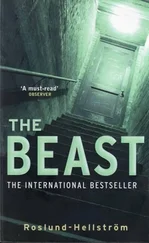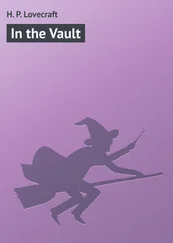He stopped at the main entrance, where she had told him to wait for her, and checked the time. He was early, with almost twenty minutes to spare. It wasn’t easy to estimate how long it would take from the centre to this aquarium-cum-museum of Baltic fish on the island of Smilty.
He picked a seat with a good view of the aquarium entrance. The sun played over his skin, and he leaned back and narrowed his eyes to watch the comings and goings, searching among the strangers for somebody like himself, as he always did. Somewhere, in this flow of people he would never know, was someone who was him, or at least like him; a man his age, with a woman he loved at his side and, walking a little ahead of them both, their beloved child. A man, who wanted to be at home but who spent most of his time elsewhere, and who might be a policeman or something else that required a strong sense of duty and long evenings at work. Someone in this crowd who lacked Ewert’s aggressiveness, Lang’s stubborn self-belief, Grajauskas’s capacity to resist, stay upright and take her revenge on those who had humiliated her. Perhaps the man who was Sven would be a little dull, ordinary, lacking in all the qualities you needed to be anything other than predictable.
He did see himself. Several versions. Had he been born here, he might have been any one of them. He studied them and smiled when he spotted a man in a short-sleeved shirt and light slacks on his way into the aquarium.
Then she tapped his shoulder.
He hadn’t seen her arrive, nor heard her call him, so preoccupied had he been with his little game. She stood in front of him, hidden behind sunglasses, wearing a thin sweater and jeans that were a little too big. She fitted his image of her quite well. Not tall, lovely face and long dark hair. Traded for three years, humiliated countless times a day. It didn’t show, not on the outside. She looked like women do in their twenties, life just starting. Inside, he knew, she was old inside. That’s where she kept her scars. It was that woman who would never be whole again.
‘Sundkvist?’
He nodded and stood up.
‘Yes. I am DI Sundkvist.’
They had no trouble speaking to each other. His English was a little rusty, hers had been polished during three years abroad and she seemed to prefer it to Swedish.
‘You recognise me?’
‘I saw you in the flat.’
‘It was very chaotic.’
‘I would know you were Swedish anyway, even if I’d never met you. I’ve got to know what Swedish men look like.’
She made a gesture towards the entrance and they walked side by side. He paid for their tickets, and once in, tried to sense when would be the right time to start questioning her. She helped him.
‘I’m not sure what you want to know. I will tell you everything. I would like to begin now, please. I trust you. I saw you at work in the flat. But I would like to get this over with. I want to go home. Forget. Do you understand?’
She looked pleadingly at him. Behind her, a wall of glass, and fish slipping through the water. He tried to appear calm, calmer than he was, now that he was going to hear the answers he had been anticipating.
‘I’m afraid I can’t tell you how long this will take. It depends. But of course I understand. I’ll do my best to keep it as brief as possible.’
He couldn’t really see the point of aquariums. Or zoos, for that matter. Caged creatures didn’t appeal to him and he found it easy to block it all out of his mind: the strolling groups of people, the fish they were meant to be looking at. He would concentrate. On Alena Sljusareva, on her and her answers to his questions.
On her story, the story he had been dreading.
The tale of events he wished hadn’t taken place.
It wasn’t a normal interview, but whatever it was went on for almost three hours. She spoke about her flight from the flat and her time spent alone in the city, how her body rejoiced at being free, how she was scared that she would be found, anxious about Lydia. The worry about her unconscious beaten friend never let up. They had sworn never to leave each other until they were both free together, but just then, the instant when Alena had decided to run away, she had been convinced that she would be of more use to Lydia well away from that fifth-floor flat.
He interrupted her whenever she seemed to hesitate, and she would clarify, never try to change the story, at least not as far as he could make out.
They walked slowly among the people watching fish. She told him about going to the harbour and Lydia calling from her hospital bed to ask for the weapons and the other things that she would later put to use in the mortuary.
Her voice was a near-whisper when she begged him to believe that she had had no idea of what her friend had been planning to do.
He stopped, looked into her eyes and explained that the purpose of his inquiry was not to establish whether she had been an accessory to kidnapping and murder.
She asked what his reason was, in that case.
‘Nothing. And everything. Leave it like that.’
A cluster of simple chairs and tables. He bought them each a cup of coffee and they sat down among the parents and children and the big fish on the blue plastic tablecloths.
She told him about the locker in Central Station, how she had broken in to the cellar and the carrier bag, which she was to deposit in the hospital toilet.
He decided to check the truth of what she was telling him.
‘What was the number?’
‘Number?’
‘The box at the station.’
‘Twenty-one.’
‘What was in it?’
‘Mostly my things. Lydia wanted only money for extras.’
‘Extras?’
‘Hitting. Spitting. Filming. Use your imagination.’
Sven Sundkvist swallowed, sensing her discomfort.
‘And Lydia? What did she keep in your box?’
‘Her money. And her two videotapes.’
‘What tapes were they?’
‘The truth. That’s what she named them. My Truth .’
‘Which was…?’
‘She told it like it was. How we came to Sweden. Who was buying and selling us as products. And what the policeman she shot had done to make her hate him. I helped her translate.’
‘Nordwall?’
‘Bengt Nordwall.’
Sven Sundkvist did not tell her that he had opened their box 21 and watched the tape, listening to them both. He did not mention that one of the tapes had gone missing because one policeman was protecting another and had decided to lose it, nor did he explain how ashamed he felt at his own inability to decide whether their humiliations were more or less important than his loyalty towards a colleague and a friend, and whether he ever would make official what only he knew now: there was another tape, a copy of the truth.
‘I saw him.’
‘Who?’
‘Bengt Nordwall. I saw him in the flat.’
‘You saw him?’
‘He saw me too. I know he recognised me. And I know he recognised Lydia.’
After that he found it difficult to listen to her.
She carried on talking and he asked her his questions, but his mind was elsewhere.
He was furious. As furious as he had ever been. He wanted to scream.
He didn’t, of course. He was after all one of the ordinary blokes, a little dull. He suppressed the scream, sensing the pressure inside his chest.
Instead he carried on pretending to be calm, unafraid of what she had to tell him. He mustn’t frighten her. He understood how brave she was, how the memories gnawed at her.
He cried out.
Cried out, then apologised to her. He had a pain, he explained. It wasn’t her, he had a pain here, in his chest.
By the time they had boarded the ferry back to the centre of town, he knew in detail what had happened during her hours of freedom, from her escape down the stairs at Völund Street to her arrest at the harbour. Fury was churning inside him, from chest to belly and back, but he felt their talk had not yet ended. He wanted to know more, about how it all worked: about those three years, the slave trade, how it was possible for a woman’s body to be sold so that someone else could top up his bank account or buy himself a new car.
Читать дальше











